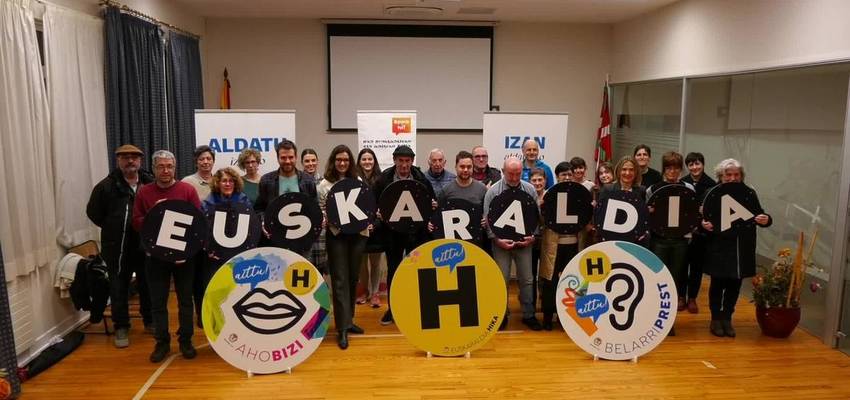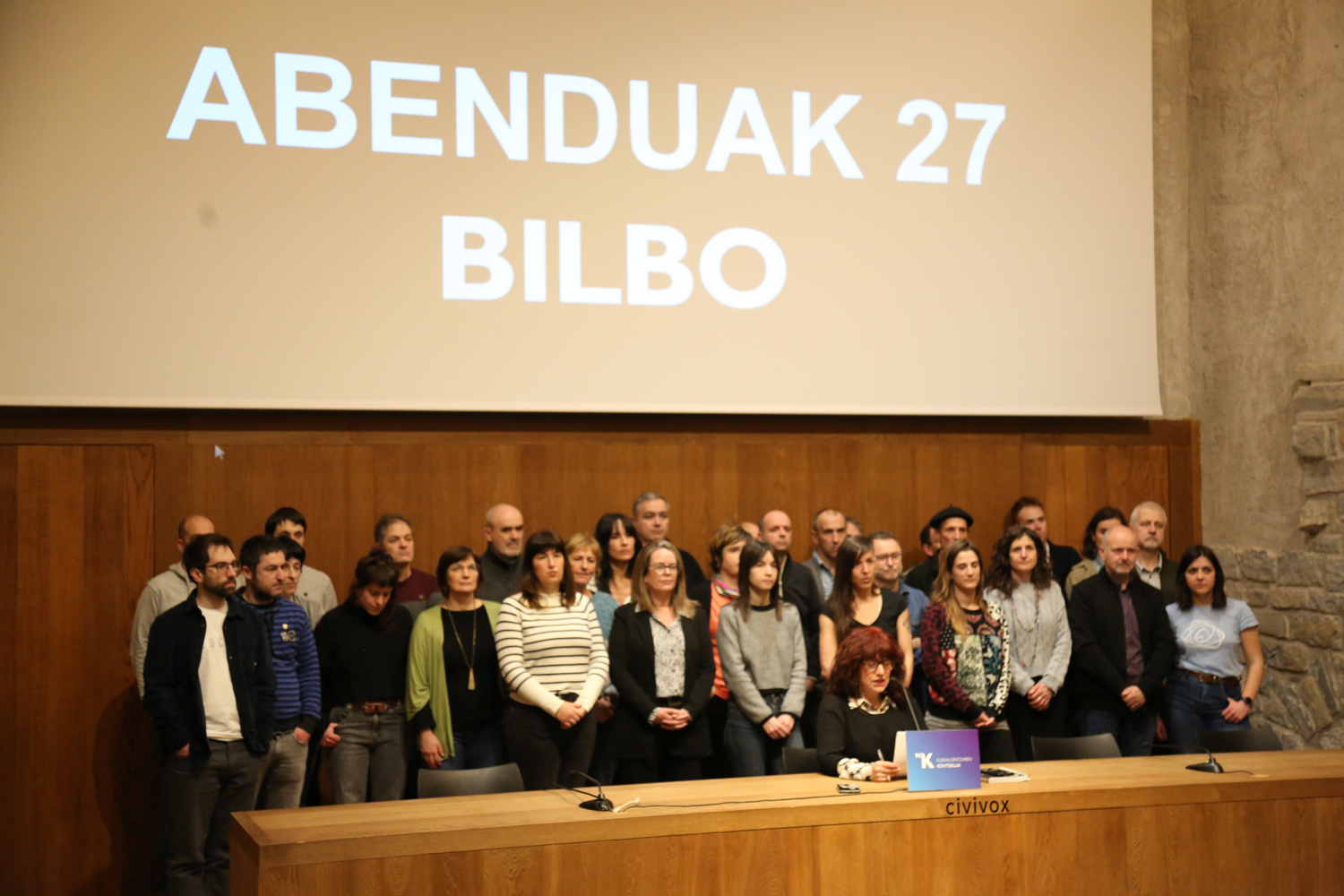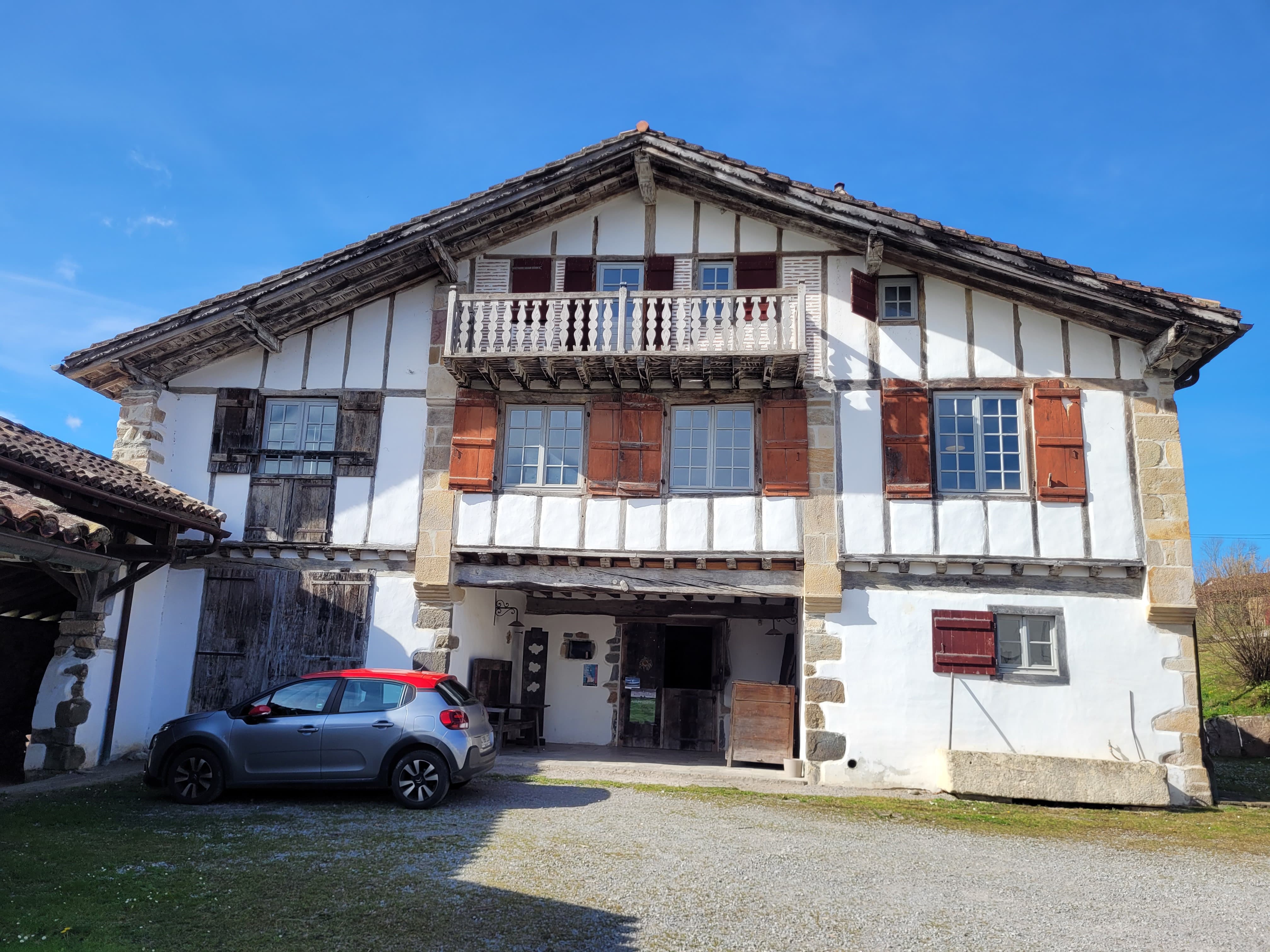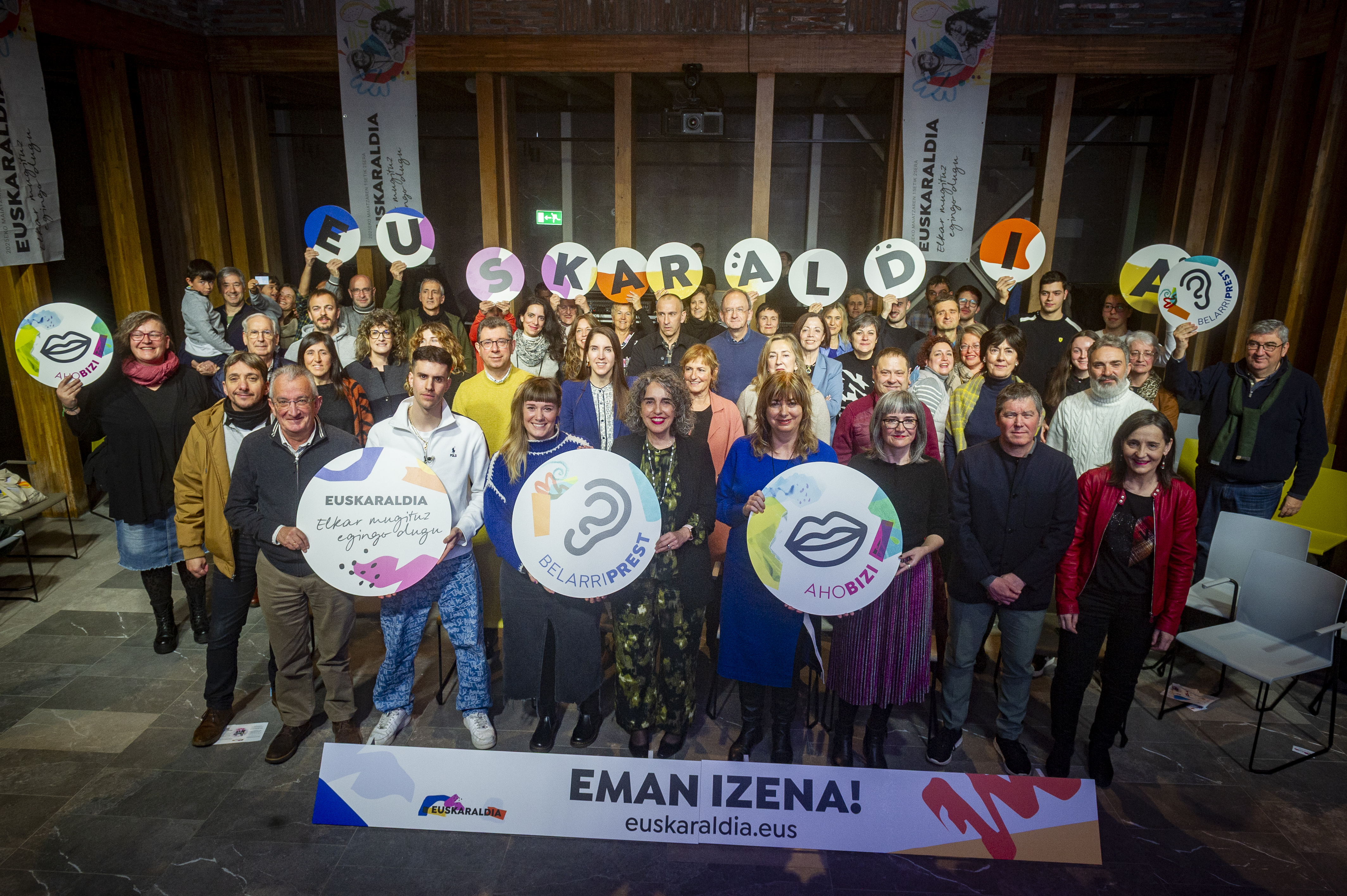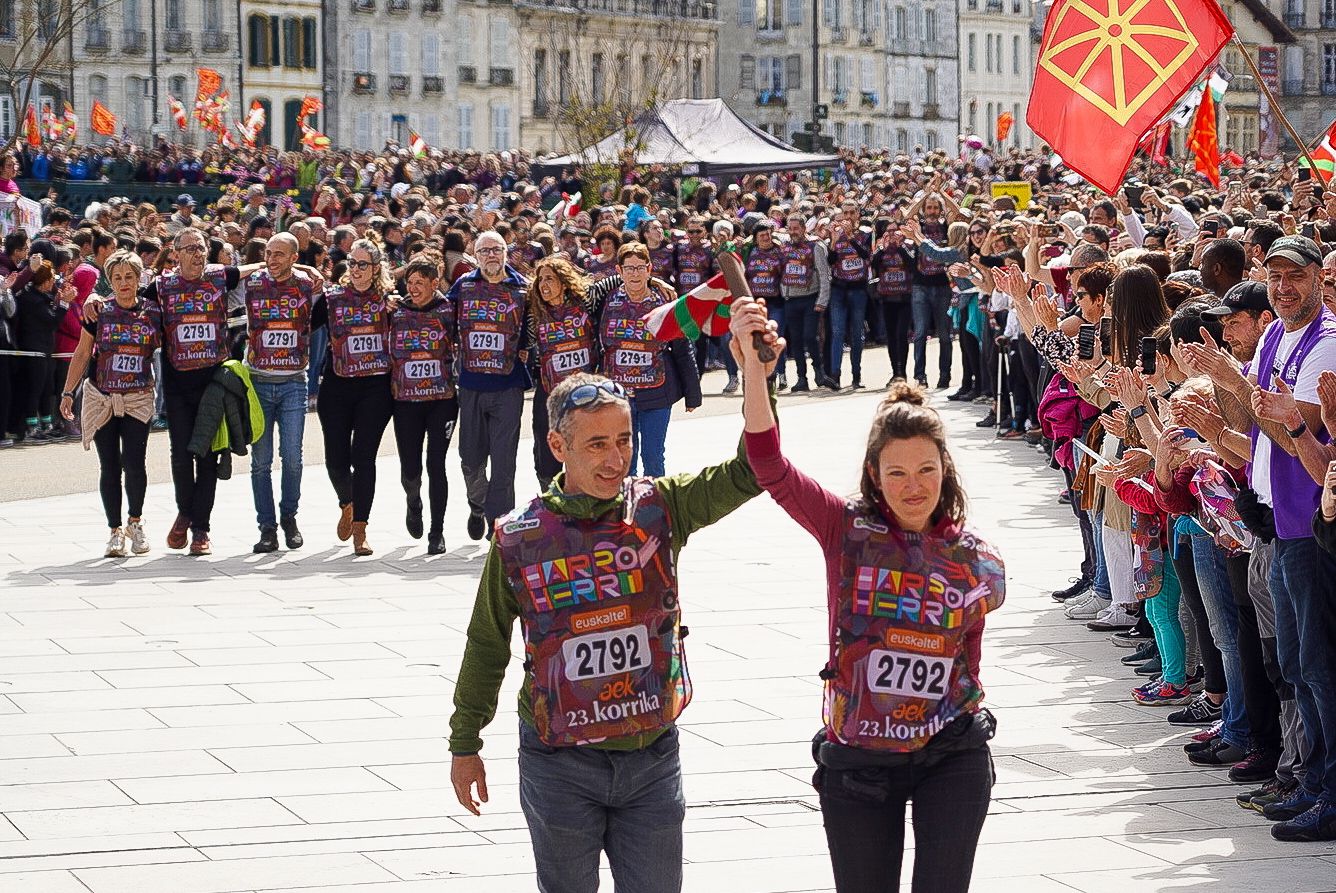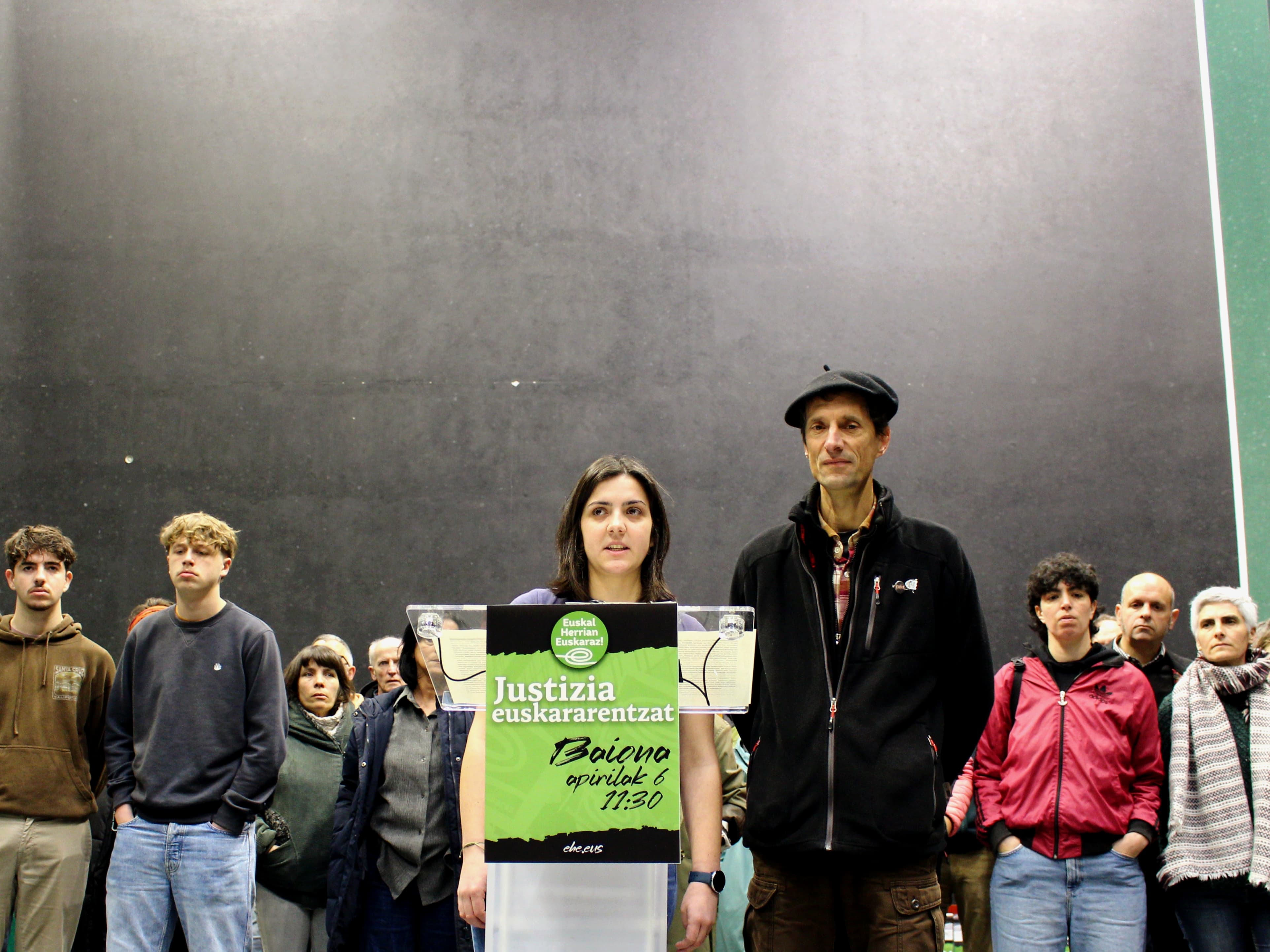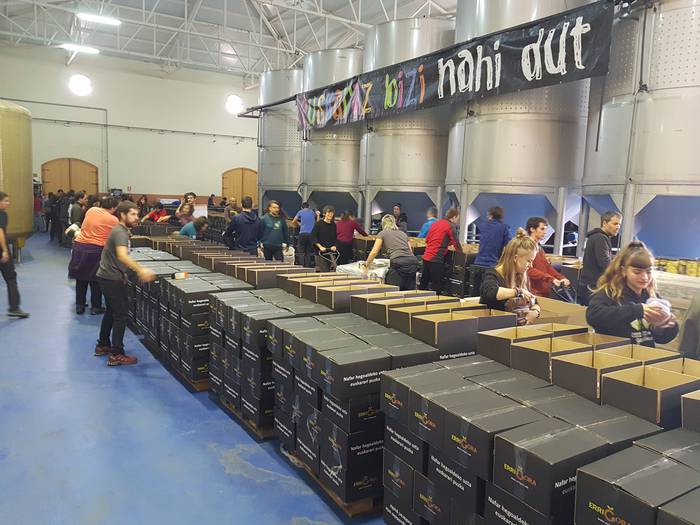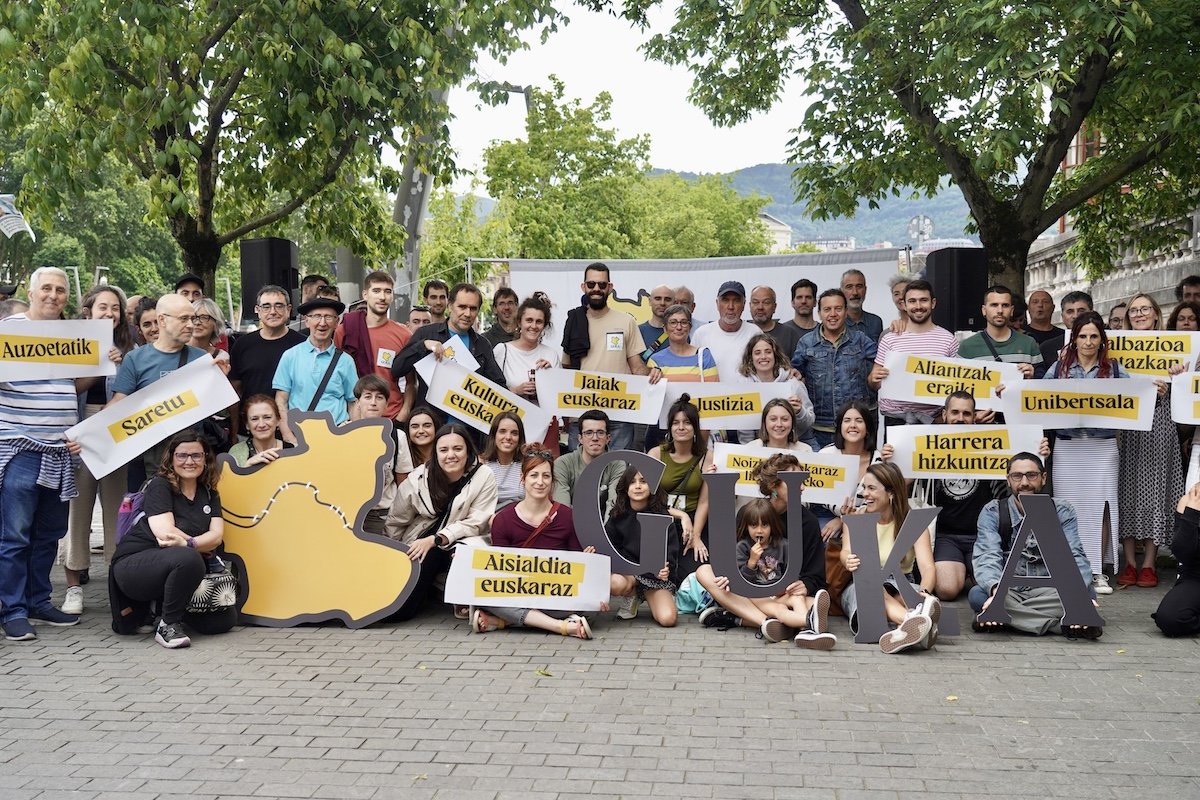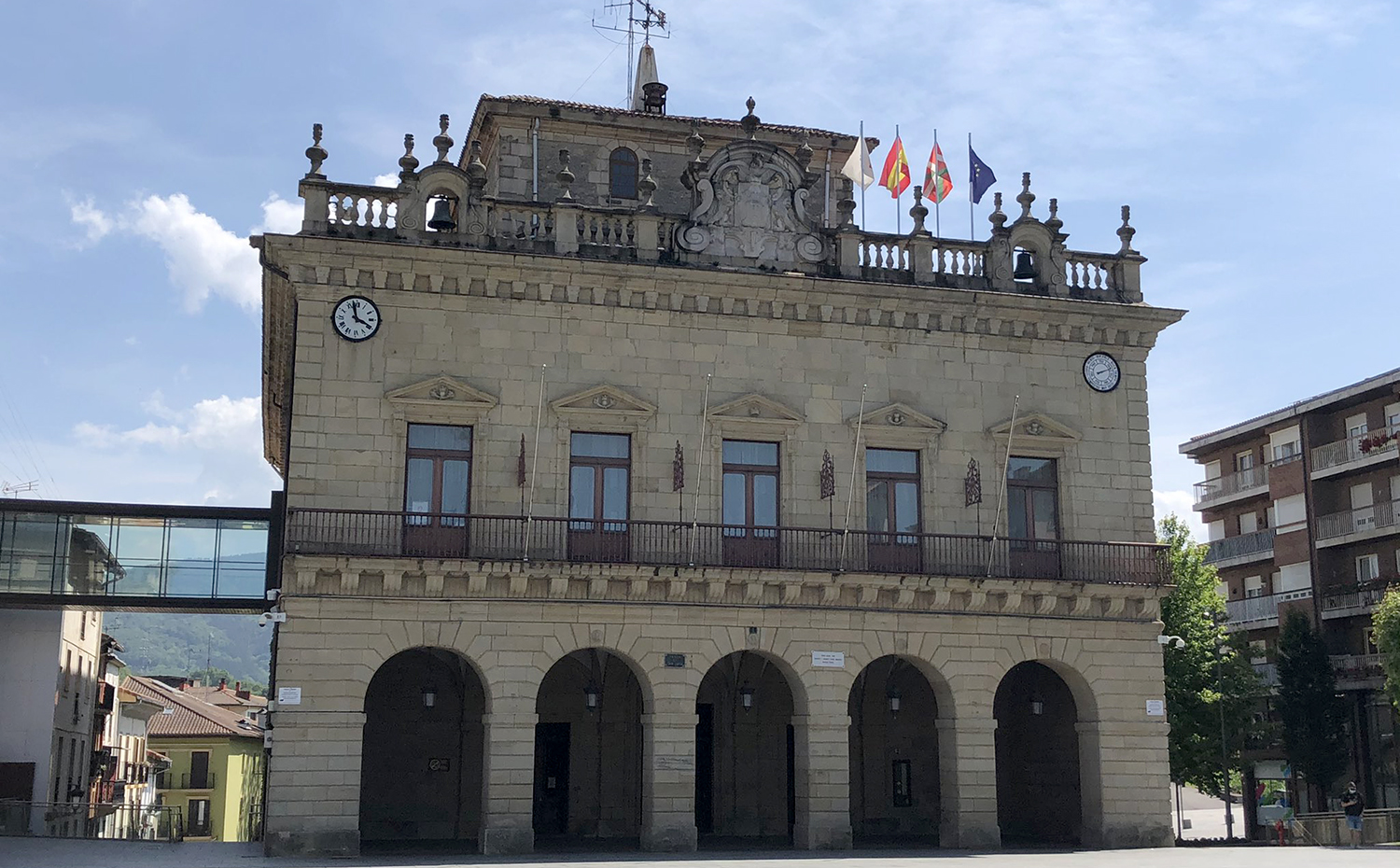Time to celebrate and worry
- The Izarra Cultural Association of Elgoibar was founded in 1963. The partnership, which aims to promote the Basque Country, will celebrate its half-century activity throughout the year. They will also take advantage of 2013 to reflect on the sustainability of the project in these times of crisis.
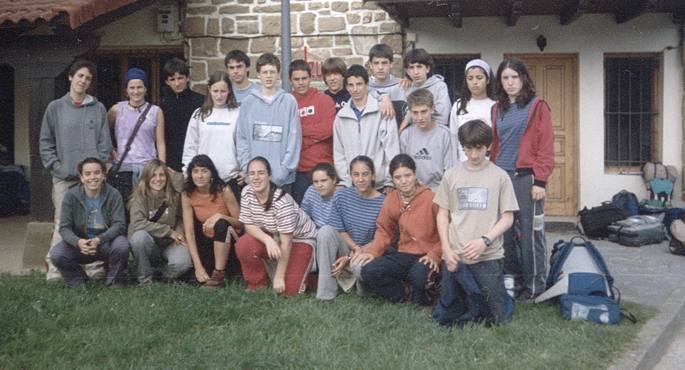
Felix Etxeberria, Jesus Larrañaga and Sabin Osoro created the Izarra cultural association of Elgoibar (Gipuzkoa). It was 1963. A year earlier the ikastola had been launched. The founders had two goals in 1963: to give some light to the dark situation of the Basque Country, and to strengthen and support the ikastola. In fact, the ikastolas and the cultural association were very united.
If we take a giant leap of 50 years, we will find a structure little similar to that of then. The Izarra de Elgoibar is now an association of Euskera, although its name has not changed. If the first stage of the association was based on militancy, in this second, the professionals have taken a great deal of weight. There are currently 19 workers and the association has 600 partners.
In order to get to know today's Elgoibar Star, it is essential to go back at least to 1990. In the 1980s, the association suffered a major disaster due to two causes. On the one hand, after Franco, the political parties began to move and many Elgoibarthars who devoted themselves to Basque culture took the leap into politics. On the other hand, the projects that emerged under the ikastola, such as the dance and txistu groups, the night school, began their journey. And the question then was: What should we do now? The General Assembly in 1990 proposed the dissolution of the association, but two or three partners decided to go ahead, claiming that the 1963 objectives had not been met. In 1987, Arrasate Euskaldun Dezagun (AED) was created, and in the following years the creation of Euskera associations was extended to the surrounding villages, including Bergara and Eibar. The Star of Elgoibar took a year to prepare the new style of the partnership, with AED and the Seminar of Choirs and Delights as guides.
A new phase began in 1992 when the dynamism Imanol Larrañaga became the first worker of the association. The first project of the Reformed Association was the Weekly Barren, which hired more staff: two journalists, a Maquetist, an publicist and an administrative officer.
How to boost participation
The second stage of the association has been characterized by professionalization. However, workers have increased, and the participation of partners has decreased. This is one of the concerns of the partnership, one of the most important issues that will be addressed in the reflection to be held this year: “When the Barren Weekly was created, there was still a balance between professionals and partners, but as professionals grow, the participation of partners is decreasing. There is participation, but it has to be smaller and bigger than a social movement demands.” These are the words of the dynamism Imanol Larrañaga. Society itself is changing, and as in other areas, in the Basque world, there is a decrease in the activity of exchanging kisses of citizenship. In 1963 the association had 1,400 members, now has 600 and “we can’t even dream of reaching that figure”. There is a second reason for the loss of participation. To the extent that professional workers have taken their place, partners have delegated their work to them. “Several partners have told us this,” says Larrañaga, “we have a lot of confidence in you” and ‘there may not be much need’. We have to do our work, but this is 600 partners.”
Rope in neck
Larrañaga sums up very well what the Izarra Cultural Association of Elgoibar is in 2013: “We look back from one eye [we have to celebrate half-century activity] and with the other eye we look to the future.” They look to the future, because although Elgoibar is more Basque than 50 years ago, there is still a lot to do, and they look forward because in the midst of the economic crisis it is difficult to maintain the structure. The 19 workers have reduced their working hours from eight hours to seven and a half hours, and their wages by 20 percent. The main source of income of the Society, the City of Elgoibar, began a few years ago to slow down the flow. In the new route started in 1991, the City Hall has been an essential partner. Every year, without fail, it has supported the projects of the partnership. With a budget of 500,000 pesetas at the beginning of the second stage, the implementation of the Barren weekly resulted in a budget leap of 24 million pesetas. At present, a structure of 19 workers must be maintained. “In the last 4-5 years we have the rope on the neck. Is the project sustainable? Will we maintain this structure for a while, until the crisis is over? Will the City return to the time of the subsidies it provided from 1991 to 4-5 years ago?” These questions must be answered by the association that has a long half-century journey.
Hedabideak
- Barren astekaria
- www.elgoibarren.net
Haurrak eta gazteak
Atxumiamaika, Kiribilka, Berbazulo, Zerbitzuak (autofinantzaziorako egindako lanak), Ludoteka eta Gaztelekua (Udalak lehiaketara ateratako ekipamenduak).
Kulturgintza
Gotzon Garateren omenezko ekitaldia, bertso jaialdia...
Tertuliak programa
Mintza-laguna edo berba-laguna moduko egitasmoa.
Nazio mailakoak
Korrika, ikastolen aldeko jaietarako garraioa, Egunkariaren itxiera
Gipuzkoako Debabarrena bailaran –Eibar, Elgoibar, Deba, Mutriku, Soraluze, Mendaro, Bizkaiko Ermua eta Mallabia– bi urteko gogoeta egin dute euskara elkarteek, erabakitzeko ea haien hedabideek orain bezala bakoitzak bere bidean segi behar duen ala eskualde mailako hedabidea abiatu behar duten. Bada, eskualdeko egitasmoari ez heltzekotan geratu dira. Besteak beste, Elgoibarko Izarrako batzar orokorrak ezezkoa erabaki du. Ondoko galdera mahai gainean zegoen: bakoitza bere herriko proiektuari eutsi ezinik ibili beharrean zergatik ez da bat bideragarria egingo? Imanol Larrañagak laburtu digu elkarteko batzarrean bazkideek egindako gogoeta: “Orain proiektu bat daukagu, herrian aparteko estimazioa daukana. Bale, ez da bideragarria, baina hain erakargarri egiten ez zaigun bailarako egitasmoarekin zatozte, eta gainera, hori ere ez da bideragarria”. Beraz, oraingoz astero-astero Barren aldizkaria argitaratzen segiko dute.
Bilbon eginiko aurkezpenean iragarri dute ekitaldia, euskarari "arnas berri bat emateko eta behar duen indarraldia gorpuzten hasteko" lehen urratsa izango dela nabarmenduta. Euskaltzale guztiei, baina, oro har, "justizia sozialean eta gizarte kohesioan aurre... [+]
Euskaraldiaren hamaikakoa aurkeztu dute Nafarroan: Julio Soto bertsolaria, Edurne Pena aktorea, Julen Goldarazena musikaria (Flakofonki), Claudia Rodriguez Goxuan Saltsan taldeko abeslaria, Eneko Garcia (Albina Stardust), Yasmine Khris Maansri itzultzaile eta kazetaria,... [+]
Euskalgintzak Senpereko Larraldea etxea faltan botako du. Uda gabe, Bertsularien lagunak, bertan gelditzen den azken elkarteak, lekuz aldatuko du eta etxea hetsiko dute. Euskararen, euskal kulturaren eta arteen ohantzea izan da Larraldea, urte luzetan Andoni Iturrioz mezenasak... [+]
Horra Libération egunkariak berriki argitaratu duen idazkia:
“Bayonne” bukatu da, Libérationek “Baiona” idatziko du
Hiri baten izenaren erabilpena ohiturazkoa delarik, egunkari batean izen horren erabilpena aldatzea zaila da. Alta, irakurleen... [+]
Gasteizen egin duten ekitaldian ireki dute izen ematea, laugarren edizioa hasteko bi hilabete falta direla. Erakundeetako ordezkariak, herritarrak eta entitateetako kideak agertu dira, besteak beste. Euskaraldiaren koordinazioa Euskal Herriko erakunde publikoen eta Taupa... [+]
Korrikaren "bihotza eta burua" erakutsiko ditu dokumentalak. Proiektua gauzatzeko, herritarren babesa "ezinbestekoa" izango dela adierazi dute AEK eta Mirokutana ekoiztetxeak, eta apirilaren 25era bitartean crowdfunding kanpaina bat abiatuko dute jalgihadi.eus... [+]
25 bat eragilek adierazi diete elkartasuna apirilaren 11n Baionako auzitegian epaituko dituzten Intza Gurrutxaga eta Gorka Torre Euskal Herrian Euskaraz taldeko kideei. Egun batzuk lehenago, apirilaren 6an Baionan eginen den manifestazioan parte hartzeko deia ere luzatu dute.
Martxoaren 10etik 26ra izango da udaberriko kanpaina. 'Beste modura, denona de onura' lelopean arituko dira gertuko ekoizpena, banaketa eta kontsumoa babestu eta sustatzeko, ager zonaldean euskara hauspotzen duten bitartean. Apirila amaieratik aurrera jasoko dira... [+]
Otsailaren 28an Hendaian eman dio hasiera kanpainari Herri Urratsek. Euskararen transmisioa bermatzen duen Seaska babestea da helburua.
Gukak “Bilbo erdalduntzen duen makina” ikusaraziko du kanpainaren bidez. 24 orduz martxan dagoen makina salatuko dute, eta berori “elikatu eta olioztatzen dutenek” ardurak hartzea eskatuko dute. Euskararen aldeko mekanismoak aktibatzea aldarrikatuko dute.
Hamahiru ZirHika kide batu dira hitanoaren erabilera aldarrikatzeko eta antolakundearen ekintzen berri emateko. Azalpenak Badihardugu elkarteko Idoia Etxeberria eta Galtzaundiko Uxoa Elustondok egin dituzte. Horiei, Andoni Egaña eta Amaia Agirre bertsolariak eta... [+]
Gabonetako argiak pizteko ekitaldia espainolez egin izanak, Irungo euskaldunak haserretzeaz harago, Aski Da! mugimendua abiatu zuen: herriko 40 elkarteren indarrak batuta, Irungo udal gobernuarekin bildu dira orain, alkatea eta Euskara zinegotzia tarteko, herriko eragileak... [+]











